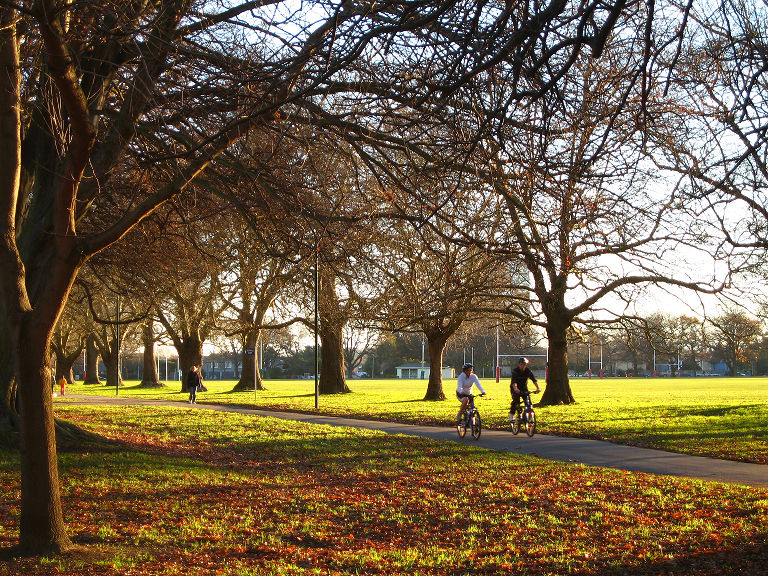Rebuilding from the Ashes: Institutional Racism and the Christchurch Rebuild

Professor James Liu, Co-Director, Centre for Applied Cross-cultural Research, Victoria University of Wellington, 1 September 2014
New Zealand is a society that prides itself on openness to ethnic diversity and commitment to liberal democratic principles of freedom and equality. Many national and international surveys have noted a consistent theme: we are an open and inclusive nation in principle, but often fall short of our ideals in specific situations.
Where particular immigrant groups are concerned, New Zealanders favour white immigrants over immigrants of other ethnic or racial origins. Asians are received with less warmth than whites in New Zealand, and consistently report more experiences of prejudice and discrimination than other groups.
The most frequently reported instances are:
- in public places, where hostile or aversive racism commonly takes the form of verbal denigration by a stranger
- in the workplace, where subtle, or symbolic racism in job seeking and career advancement leads Asian migrants to have on average the lowest wages of any cultural grouping in New Zealand according to the 2006 census.
More detailed national representative data from social psychology has shown a North-South gradient in openness to diversity, where the North Island is both more welcoming of new migrants than the South Island, and more supportive of Māori. This North-South gradient is accompanied by an urban-rural gradient, where urban areas are more open to cultural diversity than rural areas. The vast majority of Asian migrants in recent years have settled in Auckland, so demographics fit hand-in-glove with cultural geography.
But extent of the Christchurch rebuild is a game-changer: projections of the number of overseas foreign workers (OFW) required ranges from 17,000 to 40,000 when reconstruction peaks. Currently, there are about 2,000 OFWs in Christchurch on temporary work visas. Most of these are Filipinos, and unlike most Filipinos permanently resident in New Zealand, these temporary workers in the construction industry mostly fall in the category of unskilled.
In addition, Filipino workers are being hired in large numbers to fill labour shortages in the agricultural sector in the South Island, working in the sheep and dairy industries, isolated from cities and regions where the locals may be more sympathetic to OFWs.
Whereas the civil society of Auckland is ‘purpose-built’ to evolve into New Zealand’s multicultural ‘diversity engine’, Christchurch and the deep South are not so well-equipped. Labour shortages are forcing the region’s hand.
This has opened up a space for the exploitation of migrant labour that has not existed before, as was highlighted in multiple sessions of the Human Rights Commission’s Diversity Forum in Christchurch August 24-25, 2014.
Christchurch Mayor Lianne Dalziel warned of “zero tolerance” towards poor treatment of migrant workers and discrimination in workforce practices. However two breakout sessions by Migrante Aotearoa and the Centre for Applied Cross-cultural Research highlighted the difficulties in making this promise a reality. These sessions confirmed mass media accounts of immigrant labour exploitation.
Most serious among the abuses were complaints of excessive fees charged by recruitment agencies especially in the Philippines of up to NZ$20,000 (where the annual wage is less than US$3,000), and high interest repayments on loans to pay for the fees leading to indentured servitude. Also common were bait and switches where the contract signed with the recruitment agency does not match terms provided by the New Zealand employer, lack of jobs on arrival, and over-crowded and/or sub-standard accommodation.
In terms of solutions, Migrante Aotearoa (a Filipino NGO dedicated to workers’ rights) invited speakers from UNIMEG (FIRST Union's Union Network of Migrants) and MBIE’s Christchurch Labour Inspectorate to propose a Charter of Employee Obligations. In this scheme, employers, trade unions, and both national and local government would collaborate to define a voluntary charter of obligations to workers, and rely on collaborative practices to uphold these standards.
Victoria University of Wellington’s Center for Applied Cross-Cultural Research’s session offered complementary solutions that did not require such a high level of coordination. Professor James Liu introduced Wellington Women Walk for Peace Co-founder Belinda Bonzon Liu, and they proposed setting up a website to receive anonymous but registered complaints, and stories from migrant workers leading to crowd-sourced ratings of recruitment and employment agencies becoming widely available.
Professor Liu also supported Cavell Leitch’s immigration law specialist, Nicola Appleton’s ideas to:
- extend the duration of temporary work visas from 1 to 2 years
- make supporting migrants easier for employers who do the right thing (e.g. extending the accredited employer scheme, providing same day services for simple cases with Immigration New Zealand)
- tougher law enforcement against business operators who regularly fail to adhere to the law
- civil society support for migrants who are exploited
- recognise and encourage competent immigration lawyers and advisors.
The extent of New Zealand’s engagement with Asia has been greatly extended by the Christchurch rebuild. Costs will be high if we as a nation fail to recognize the challenge before us: to adhere to New Zealand’s liberal democratic values, and not allow unscrupulous businessmen both at home and abroad to exploit migrant labour in a way that one presenter described as ‘modern day slavery’.
Professor James Liu is optimistic that New Zealand’s civil society can mobilize and collaborate with local and national government to improve the character labour relations to allow Christchurch to rise like a multicultural phoenix from the proverbial ashes of the rebuild and he is committed, with Center for Applied Cross-cultural Research, to offer any supportive research and advocacy that might help in this mission.
Read more coverage in the Christchurch Press: 'Migrants treated like bonded labour'
Image: "HagleyPark02 gobeirne" by Greg O'Beirne - Own work. Licensed under CC BY-SA 3.0 via Wikimedia Commons.
